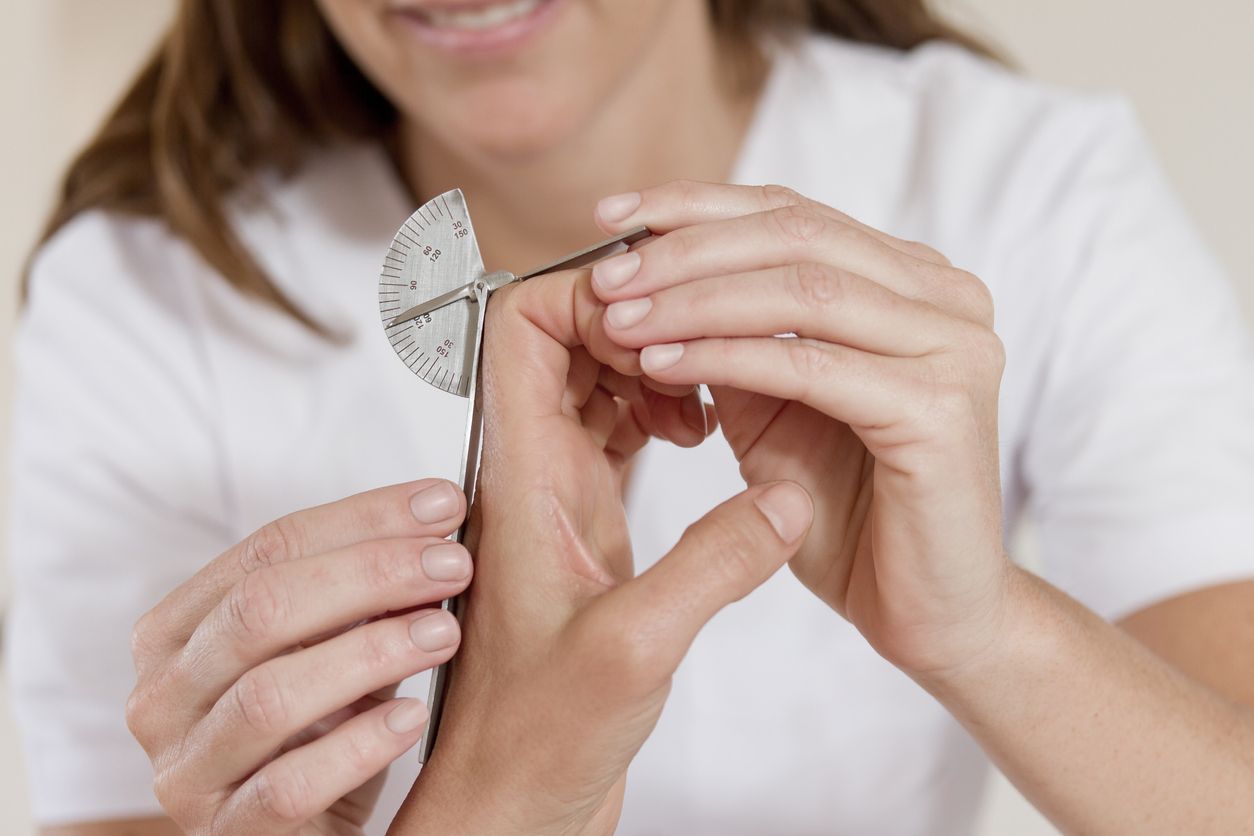Occupation-Based Hand Therapy for Work-Related Injuries

If you’ve ever been prescribed occupation-based hand therapy, you may have felt a bit confused at first. That’s because this niche of occupational therapy (OT) is not restricted to the treatment of hand injuries alone.
In fact, occupation-based hand therapy can be prescribed to treat a broad range of upper extremity and orthopaedic-based injuries, which are among the most common on-the-job injuries. To name a few:
- Injured tendons or nerves
- Upper extremity fractures
- Carpal tunnel syndrome
- Lateral epicondylitis caused by repetitive wrist and arm motions
- Arthritis
While not everyone who needs occupation-based hand therapy got hurt at work, many of the injuries are related to people’s jobs. That’s because so many of us use our upper extremities to perform tasks at work, and repetitive motions like typing, food prep, and using hand tools can easily lead to injuries if workers aren’t sufficiently protected.
Why Get Occupation-Based Hand Therapy?
When patients suffer work injuries of the shoulder, arm, wrist, or hand, it can take a serious toll on their ability to handle regular daily functions, not to mention their ability to do their job. Roughly a third of serious workplace injuries involve the upper extremities, with hand injuries being the most common ones. This leads tens of thousands of workers to seek treatment for injuries each year, some of which require surgery, that can be treated with occupation-based hand therapy.
If you’re in this position, you will likely receive treatment from a certified hand therapist (CHT), who will use occupation-based hand therapy to help you return to a productive lifestyle. This type of therapy addresses the biomechanical issues underlying your condition with an added, patient-centered approach focused on your particular needs and goals. Not only does it improve the day-to-day lifestyle of patients, but it also enables them to perform routine work functions so they can return to work more quickly and safely.
According to the American Occupational Therapy Association, benefits include:
- Preserving targeted roles and habits by addressing day-to-day functioning early in your rehabilitation
- Getting a cost-effective form of rehabilitation through patient-centered intervention
- Creating a partnership between you and the therapist
- Receiving consultation on what to do and not do at home to hasten your recovery
What Happens in Your Sessions?
In occupation-based hand therapy sessions, you and your therapist will work closely together so that you can achieve your desired level of activities. Your CHT may begin the first session by asking what you’d like to be able to do and then adapt subsequent sessions and exercises accordingly. Here are examples of what might take place in a therapy session:
- Set holistic goals with your therapist, including any psychological or social ones, to lay the groundwork for a full recovery.
- Do activities focused on improving your range of motion and muscle strengthening.
- Simulate aspects of work or life activities such as self-care and household tasks.
- If necessary, receive splints or adaptive equipment that will facilitate your ability to perform daily activities like dressing and driving.
As you prepare for your first session, keep in mind that your goals can be personal and far-reaching, including emotional and psychological ones. Some activities may include adaptations to enable you to engage in activities immediately, even if you’re still healing. If you sustained a tendon injury of your dominant hand, for example, your therapist might work with you to provide adaptive techniques intended to compensate for your limited hand mobility so that you can prepare meals and use your phone.
MidAmerica’s Occupational Medicine Program
As part of the Occupational Medicine Program at MidAmerica Orthopaedics, many patients receive on-site occupational therapy. This means you’ll have access to in-house ancillary services, physician appointments, and a licensed Orthopaedic Surgery Center all at one location – aiding your prompt return to work and to life. The therapists’ and physician’s experience, combined with dedicated workers compensation case management, make for a strong return to work program.
The goal of the program is to provide exceptional and thorough care and get patients safely back to work in a timely manner, helping them save on costs as well as injury-related stress. Patients and their employers can both feel confident in a safe return when the time is right.
If you want to know if you’re a candidate for occupation-based hand therapy, contact MidAmerica Orthopaedics at (708) 237-7200 to schedule an appointment. Our team of experts will focus on minimizing any pain or loss of motion you’ve experienced and help get you back to the life you love.

